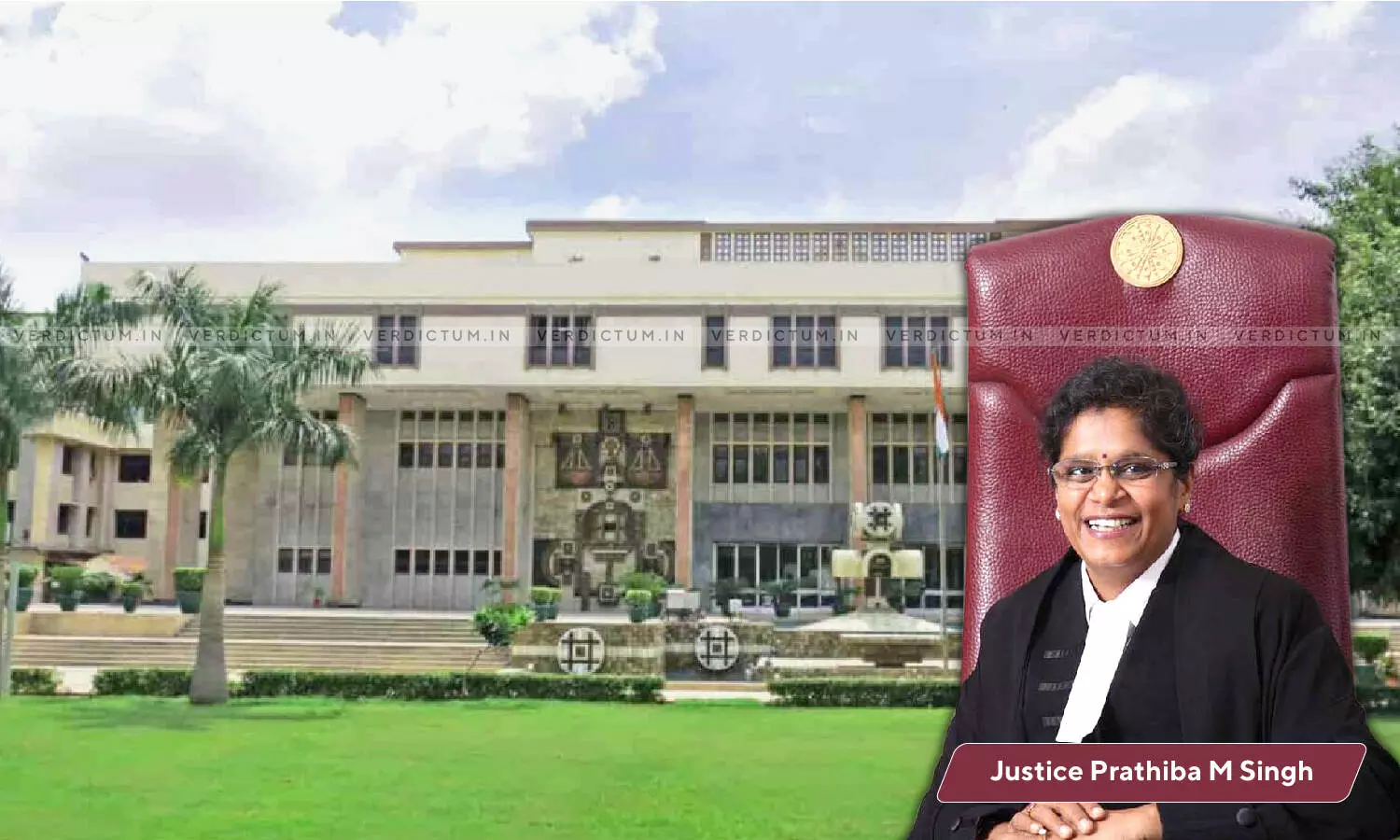
There Can Be No Copyright Claimed In Scriptures; Any Adaptation Of Work Or Dramatic Work Would Be Entitled To Copyright Protection: Delhi HC
 |
|The Delhi High Court has held that there can be no copyright claimed in scriptures but any adaptions of the said work or dramatic work would be entitled to the copyright protection.
A suit was filed by The Bhaktivedanta Book Trust, India against https://bhagavatam.in/#gsc.tab=0 seeking permanent injunction, restraining infringement of copyrights, damages, rendition of accounts of profit, costs, etc.
A Single Bench of Justice Prathiba M. Singh observed, “There can be no doubt that the Shrimad Bhagavad Gita is one of the most revered ancient scriptures in the world. The Bhagavad Gita along with the other scriptures like Bhagavatam which are written about by the Author are all `public domain’ works. There can be no copyright claimed in the Scriptures. However, any adaptations of the said work including providing explanation, summary, meaning, exegesis/interpretation or creating any audio visual works for eg., television series like Ramanand Sagar’s Ramayana or B.R. Chopra’s Mahabharata; dramatic works created by drama societies based on scriptures etc., being transformative works, would be entitled to copyright protection - being original works of the Authors themselves.”
The Bench said that there can be no objection in the actual reproduction of the text of Shrimad Bhagavad Gita or similarly other spiritual books; however, the manner in which the same is interpreted by different gurus and spiritual teachers being varied in nature, copyright would vest in respect of the original parts of the literary works which preach, teach or explain the scripture.
Advocate Saikrishna Rajagopal appeared for the plaintiff while Advocates Debarshi Dutta and Mrinal Ojha appeared for the defendants.
In this case, the plaintiff was the trust established by His Divine Grace A.C. Bhaktivedanta Swami Prabhupada, ‘Srila Prabhupada’ (hereinafter, ‘Author’). The Author was a renowned scholar, philosopher, cultural ambassador, prolific author, religious leader, spiritual teacher, a social critic and was revered by his devotees as a Guru. He was also credited with the establishment of the International Society for Krishna Consciousness (ISKCON) and had spread the message from various Hindu scriptures including from the Shri Bhagavad Gita, in India and in several foreign countries. Publications written by the Author included various lectures and published books read by devotees and those who were interested in his teachings, in a large number of languages including English, Hindi, Tamil, Telugu, Assamese, and other regional languages, as also foreign languages such as French, German, Russian etc.
It was averred that some of the Author’s works had simplified the religious books and scriptures and made it easy for the common man to understand. The copyright in all the works which were based on the Authors teachings, writings, lectures, and preaching vested with the plaintiff. The Author attained Mahasamadhi in 1977 and, accordingly, the plaintiff claimed the copyrights in all the works written by the said Author. The grievance of the plaintiff was that the defendants were websites which were making available a large number of the plaintiff’s copyrighted works almost in a verbatim manner on their online platforms.
The High Court after hearing the contentions of the counsel noted, “A perusal of the record would show that the books being made available by the Defendants 1 to 14 are complete reproductions of the works of the Plaintiff, which were authored by Bhaktivedanta Swami Prabhupada, ‘Srila Prabhupada’. These are not mere reproductions of the original scriptures as it is, i.e., the shlokas but their अनुवाद (Anuvaad) and तात्पर्य (Tatparya), summary, introduction, preface, cover etc., have all been reproduced.”
The Court further said that such piracy of the copyrighted works of the plaintiff cannot be permitted and if such piracy goes unchecked, the copyright in the said works would be considerably diluted leading to immense loss of revenues to the plaintiff.
“Under these circumstances, this Court is of the opinion that the Plaintiff has made out a prima facie case for grant of an ex parte ad interim injunction. The balance of convenience lies in favour of the Plaintiff and irreparable injury would be caused to the Plaintiff if the interim injunction is not granted”, added the Court.
Accordingly, the High Court issued certain directions and listed the case on March 12, 2024.
Cause Title- The Bhaktivedanta Book Trust, India v. https://bhagavatam.in/#gsc.tab=0 & Ors. (Neutral Citation: 2023:DHC:6960)